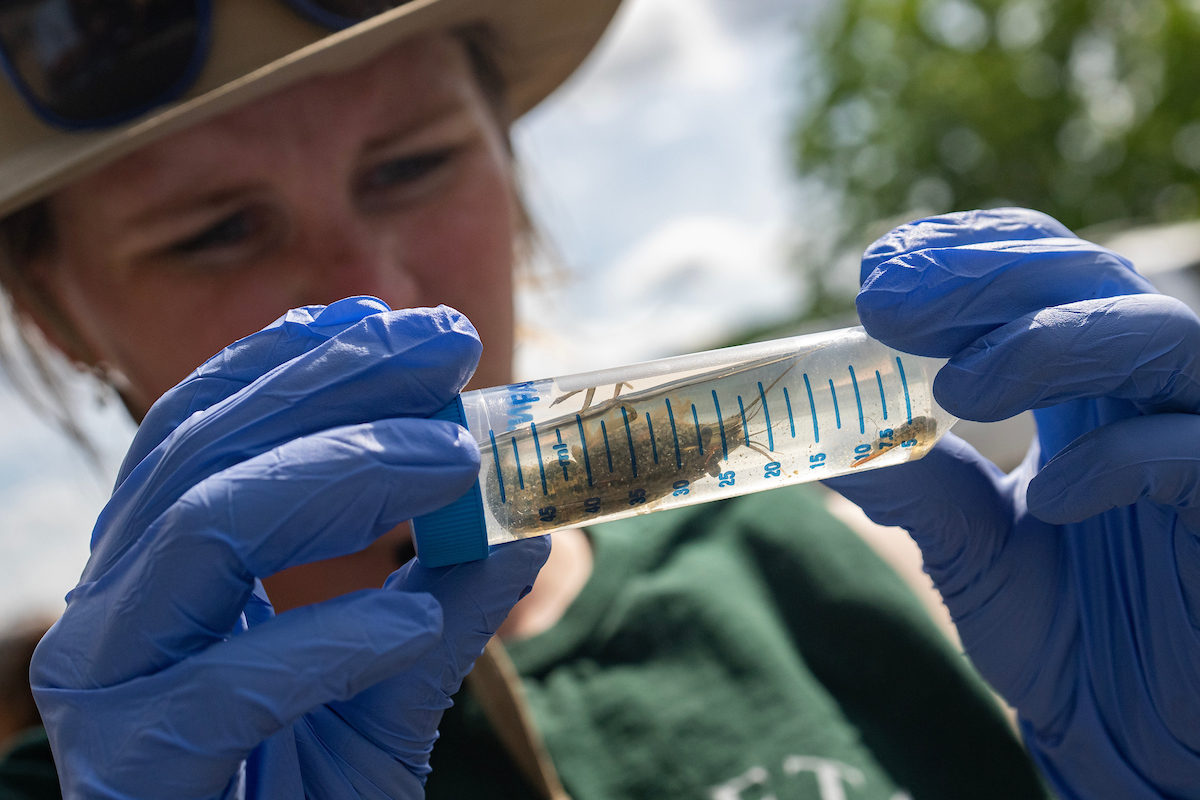
Experiential Learning
Our undergraduate degree program offers high-impact learning experiences across all degree tracks to produce effective and adaptable natural resources leaders. Educational experiences in our department extend beyond the traditional classroom experience to ensure students gain hands-on opportunities most relevant to their career and professional development goals.
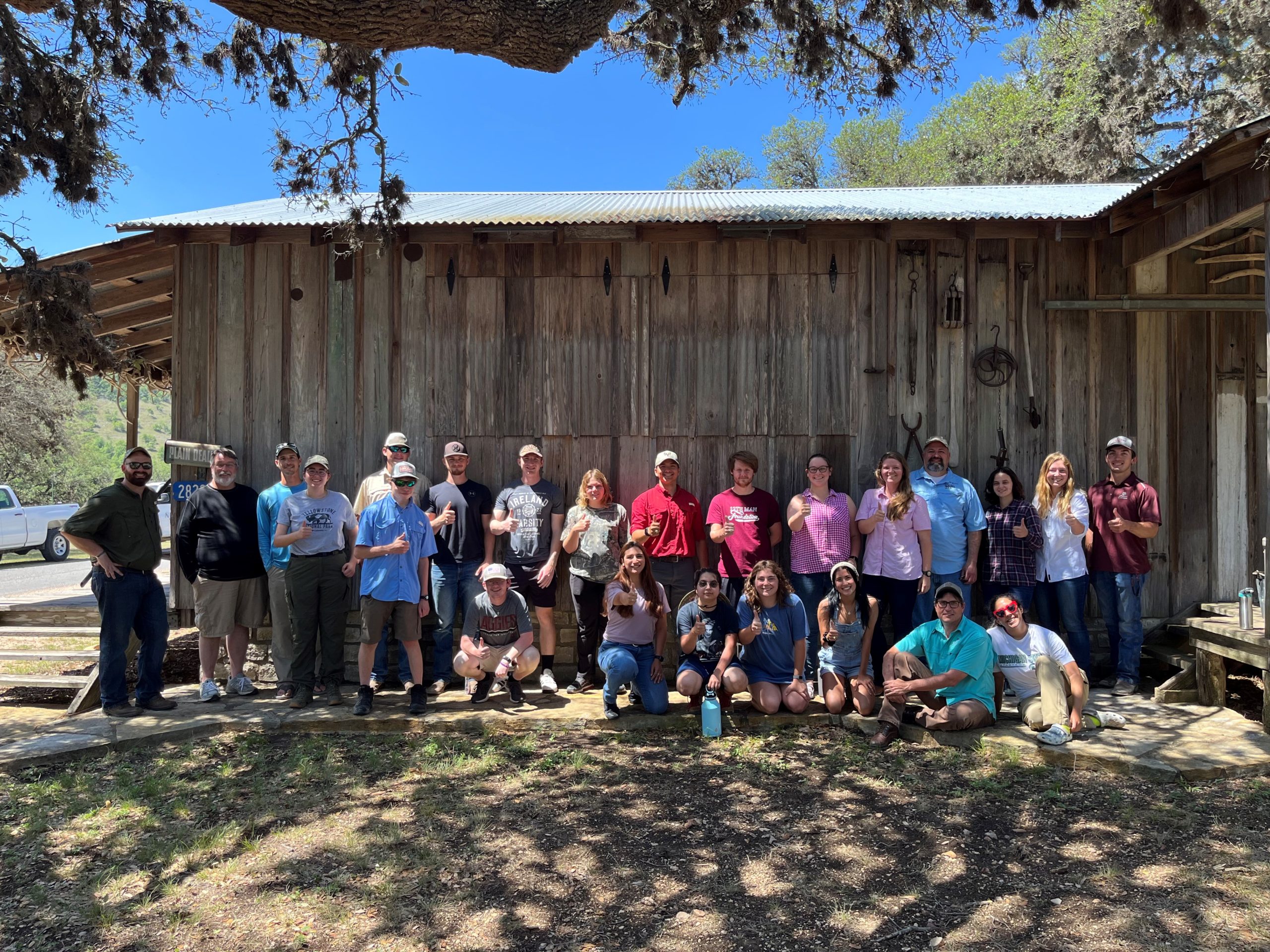
Summer Camp
Between their sophomore and junior year, students are immersed in a rigorous two-week field station that provides direct experiences working closely with diverse individuals while engaging in field-based problem solving. The course, led by RWFM faculty and additional natural resource professionals, reinforces classroom principles through the direct implementation of natural resource management techniques such as analyzing and assessing management scenarios, performing field measurements, executing conservation planning, and the examination of social, legal/regulatory, and economic factors and constraints.
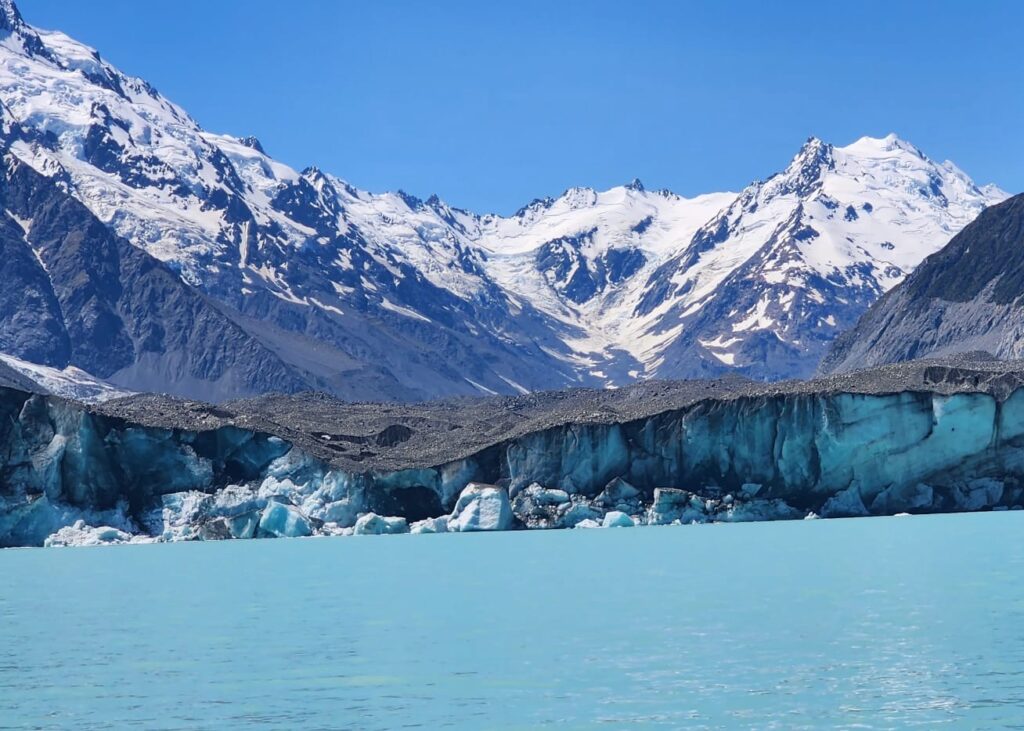
Study Abroad in Natural Resources – New Zealand & Australia
From the alpine glaciers of New Zealand to the tropical shores of Australia, students explore themes related to sustainability, biodiversity, and climate through educational field trips, lecture presentations and seminars, and coursework exercises. Course themes are explored through the contexts of agriculture, culture, community development, tourism and protected area management (national and marine parks). The goal of the program is to integrate different perspectives drawn from the natural, biological, and social sciences to improve the understanding of relationships between human societies and the natural environment. The program’s focus moves through the remote terrestrial environments of New Zealand’s South Island to the Great Barrier Reef marine environment of Queensland.
Program Requirements
- Maintain 2.5 cumulative GPA until program start
- Remain in good academic and conduct standing
- Attend at all program-specific meetings
- Meet with faculty member as part of the application requirement
All students are required to take a total of 6 credit hours to participate in the program. Students should meet with their academic advisors to ensure they meet eligibility requirements and that the courses are degree applicable.
Contact Gerard Kyle, Ph.D., Professor and Associate Department Head for Academic Programs for more information.
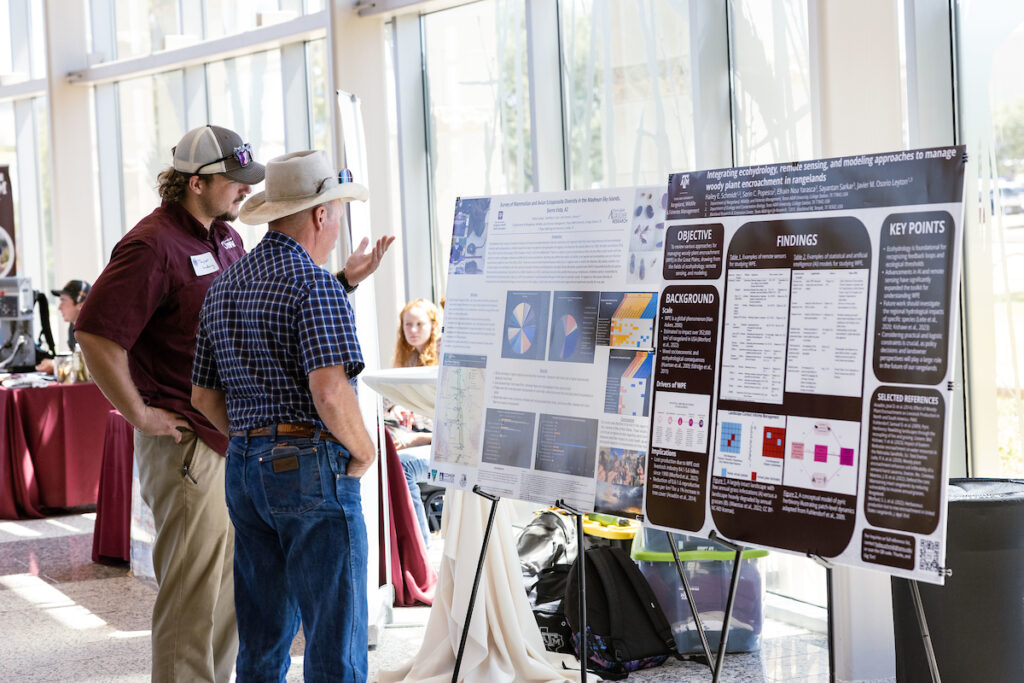
Undergraduate Research
Through faculty-mentored undergraduate research, students have the opportunity to contribute to their academic field of interest from the moment they enroll.
Undergraduate research allows students to explore academic interests and potential careers while developing practical problem-solving skills. Students are encouraged to discuss potential research opportunities with professors who specialize in their field of interest. Undergraduate research projects are typically associated with existing, ongoing projects within the department. Course credit may be earned for research activities, and students also have the opportunity to showcase their work during the Texas A&M University Student Research Week, the largest student-run research symposium in the nation.
RWFM also actively participates in Texas A&M’s Research Experiences for Undergraduates, a National Science Foundation-funded program hosted by universities nationwide to encourage undergraduate participation in science, technology, engineering and mathematics, or STEM, research. Thanks to the numerous properties and centers housed within RWFM, there is no shortage of research opportunities. Learn more and apply by visiting our Departmental Forms page.
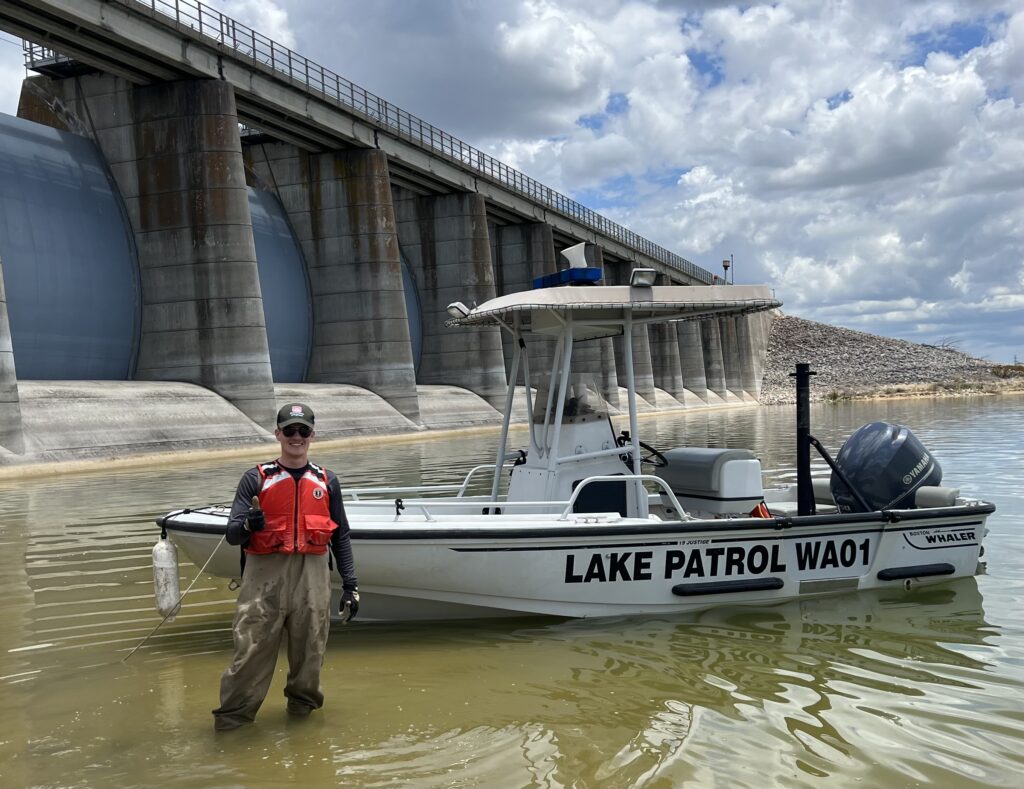
Internships
Internships are a critical component of professional development, providing students with real-world job experiences while also building their professional network. Further, students can earn course credit by completing an approved internship.
In addition to internships offered by outside organizations across the country, RWFM has established an ever-growing Collaborative Internship Program with Clemson University, Ducks Unlimited, Nemours Wildlife Foundation and the Bob and Bessie Welder Wildlife Foundation. This partnership ensures that one Texas A&M student each year will have the opportunity to train across multiple ecosystems with recognized leaders in the field. This program also provides housing, on-site transportation, as well as a travel and weekly stipend.
Faculty and staff members are dedicated to ensuring students are aware of available opportunities and actively assist students through the internship search and application process. Learn more through our collection of frequently asked internship questions and by visiting our Departmental Forms page.
Examples of student internships include:
- East Foundation
- Environment for the Americas
- Texas A&M AgriLife Extension
- Texas A&M Natural Resources Institute
- Texas Parks and Wildlife Department
- The National Park Service
- U.S. Army Corps of Engineers
- USDA Natural Resources Conservation Service

RWFM Stewards Program
The Department of Rangeland, Wildlife and Fisheries Management’s Stewards Program is a student-led initiative that promotes and shapes the public image of the department.
Stewards are distinguished student leaders and departmental ambassadors who take on the important responsibility of conducting in-person presentations and tours for prospective students and also represent the department at key events.
The program is designed to equip Stewards with extensive training and leadership skills, fostering confidence and knowledge to effectively convey the compelling story of RWFM to potential future students. Learn more and apply by visiting our Departmental Forms page.
Find Your Community
With more than 1,000 student groups at Texas A&M, you are bound to find an organization to help you get connected. Visit Texas A&M’s Maroon Link to see a comprehensive list of current student groups and organizations that celebrate inclusion and support individuals from all backgrounds, encompassing the various characteristics of all people in a welcoming academic environment. In the Department of Rangeland, Wildlife and Fisheries Management we have student organizations that will help you achieve your fullest potential and develop you as a professional.
Texas A&M Student Chapter of The Wildlife Society
Advisor: Stephen Webb, Ph.D., and Ty Werdel, Ph.D.
The Texas A&M Student Chapter of The Wildlife Society’s mission is to equip students with the knowledge, skills, and professional development to become the wildlife leaders of tomorrow and promote the sound stewardship of wildlife resources and of the environment upon which wildlife and humans depend.
Learn more: Facebook, Instagram
Texas A&M Student Chapter of the Society for Range Management – “Range Club”
Advisor: Steven Evans and Humberto Perotto, Ph.D.
The Texas A&M Range Club enhances the professional development of students through building relationships with mentors, volunteer activities, parent-society meetings and much more. Our goal is to promote the wise management of rangelands and natural resources of Texas, the United States and the world.
Learn More: Facebook, Instagram
Texas A&M Student Chapter of the American Fisheries Society
Advisor: Josh Perkins, Ph.D.; Department Contact: Beth Silvy, Ph.D.
The Texas A&M Student Chapter of the American Fisheries Society’s mission is to promote the conservation and wise use of fisheries resources and supports the teaching of fisheries science and field experiences for student members.
Learn more: Facebook, Instagram
Alpha Zeta
Alpha Zeta strives to bind together a group of men and women interested in the continued advancement of agriculture and to foster and develop high standards of scholarship, character, leadership and a spirit of fellowship among all of its members. The Texas Alpha Chapter is part of the national Alpha Zeta organization.
RWFM Graduate Student Organization
Advisor: Gerard Kyle, Ph.D.
The RWFM Graduate Student Organization serves to connect and create a community for graduate students in the RWFM department by providing opportunities for both professional development and social gatherings. The GSO serves as the collective voice for graduate students in Rangeland, Wildlife and Fisheries Management at the department, college, and university levels.
Learn more: StuAct, Facebook, Instagram